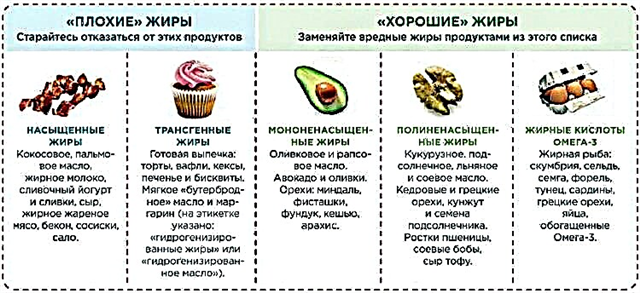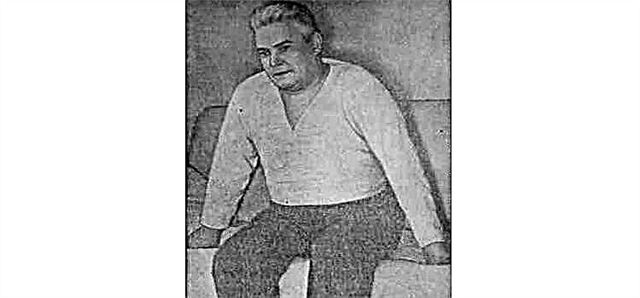Pressing or stabbing sensations behind the sternum are familiar to most patients over 40. The occurrence of angina pectoris is a characteristic sign of impaired blood flow through the coronary arteries to the heart muscle. In the home medicine cabinet, such people always have the right remedy to relieve pain. Most often, distracting or reflex drugs are used: Valocordin, Corvalol and others. However, according to clinical guidelines, only Nitroglycerin has proven efficacy in the emergency treatment of heart attack.
Instructions for the use of Nitroglycerin
 The drug belongs to the group of organic nitrates, which have a vasodilating (expanding the lumen of blood vessels) effect.
The drug belongs to the group of organic nitrates, which have a vasodilating (expanding the lumen of blood vessels) effect.
According to the classification, Nitroglycerin is distinguished:
- short (takes effect immediately, the effect lasts up to 30 minutes);
- prolonged action (the result lasts up to a day).
The active substance penetrates well through the skin and mucous membrane of the oropharynx, enters the bloodstream. After the onset of the effect, it binds to blood proteins and exits with urine (the duration of circulation is determined by the form of release).
The drug is prescribed by general practitioners, therapists and cardiologists, who determine the availability of indications and the most appropriate way to take the drug.
The task of the doctor is to teach a person to take the drug correctly: when, how many times a day, in what dose?
Frequent side effects and the danger of overdose require careful monitoring of the patient's tolerance and dose adjustment.
Indications: what does the drug help from?
The availability, low price and effectiveness of the product determine its widespread use. However, there are specific indications for the use of Nitroglycerin, the departure from which is often accompanied by side effects. The medicine is prescribed in the case of:
- angina pectoris - a chronic form of coronary heart disease (CHD), which is characterized by attacks of pain behind the breastbone during physical activity;
- acute coronary syndrome (a pathological condition that precedes a heart attack) - at the stage of prehospital medical care;
- severe and prolonged pain in the heart area associated with open surgery or a previous heart attack;
- heart failure (systolic) with pulmonary congestion;
- arterial hypertension, including hypertensive crisis with cardialgia.
 The list of indications depends on the form of release of the drug: liquid nitroglycerin for intravenous administration is more often used in a clinic to create a controlled low pressure. The agent in a spray or tablets is prescribed for home relief of attacks of chest pain.
The list of indications depends on the form of release of the drug: liquid nitroglycerin for intravenous administration is more often used in a clinic to create a controlled low pressure. The agent in a spray or tablets is prescribed for home relief of attacks of chest pain.
The drug is absolutely contraindicated in patients with:
- bradycardia (low heart rate);
- arterial hypotension;
- signs of cerebral edema;
- suffered a stroke or subarachnoid bleeding;
- angle-closure glaucoma.
It is forbidden to drink nitroglycerin during pregnancy, except in case of emergency.
Dosage forms
Widespread use and high efficiency of the drug has led to the presence of many forms of release for ease of use.
To increase the availability of infusion and spray medicines, the composition includes a 96% alcohol solution (synonymous with ethanol). Additional substances in the tablet form: aspartame, cellulose, starch. The ointment contains petroleum jelly, paraffin and hydroxypropyl cellulose.
The main differences between the drugs are presented in the table.
| Release form | The onset of the effect | Duration of action | Maximum effect |
|---|---|---|---|
| Sublingual tablets (“under the tongue”) | 2-3 minutes | 20-30 minutes | 2-5 minutes |
| Nitrospray | 1.5-2 minutes | 20 minutes | 4 minutes |
| Ointment | 15 minutes - 1 hour | Up to 8 hours | 1-2 hours |
| Patch | 1-2 hours | Up to 24 hours | Until 10 o'clock |
| Solution for infusion | 1-2 minutes | Up to 5 minutes | 1-2 minutes |
For the relief of acute attacks, sublingual tablets and spray, intravenous administration are most often used. Drugs with a prolonged (long-term) effect are more often used to prevent seizures and create low blood pressure during interventions.
There are capsules for internal administration (oral), but their effectiveness is reduced, since the drug is slowly absorbed by the mucous membrane of the stomach and intestines and is quickly destroyed by liver enzymes.
Administration and dosage
The frequency and duration of the use of Nitroglycerin is determined by the cardiologist individually in the case of each patient, taking into account the diseases, indicators of laboratory and instrumental research methods.
Average values: how much and how often to take individual forms of the medication are presented in the table.
| Release form | Dose per application (mg) | Multiplicity (once a day) |
|---|---|---|
| Pills under the tongue | 0.5 (1 tablet) | as needed at intervals of 5 minutes |
| Oral tablets | 5-13 | 2-3 times |
| Spray (4% solution) | 0.4 (1 dose) | as needed at intervals of 10 minutes |
| Ointment | 3-30 | 1-3 times |
| Patch | 25-50 | 1 time |
| Solution for infusion (1% - 2 ml, diluted in 200 ml of saline) | 50-100 mcg / minute | 1 time - until the desired effect is achieved |
Long-term use of the drug (more than 2 months of regular use) contributes to the development of tolerance in a person - a decrease in the effect of a standard dose, with the need to increase the amount of the drug.
Overdose symptoms and their consequences: what can you die from?
The undesirable consequences of taking Nitroglycerin arise against the background of use with intolerance or exceeding the maximum daily doses.
 The main signs of the toxic effect of high concentrations of the drug:
The main signs of the toxic effect of high concentrations of the drug:
- severe headache of a diffuse nature due to increased intracranial pressure;
- decreased vision clarity;
- sudden weakness;
- heart palpitations (against the background of a weak pulse);
- drop in blood pressure (pronounced hypotensive effect of the drug);
- dizziness;
- loss of consciousness;
- feeling of heat and redness of the face.
Overdose most often occurs against the background of intravenous infusion of the drug, with a duration of more than 2 hours, acute ethanol intoxication develops. The main cause of death in such patients is sudden respiratory arrest due to the toxic effect of alcohol on the centers in the brain. Emergency care when symptoms appear consists in stopping the administration of the drug, increasing blood pressure (Dopamine, Atropine), detoxification therapy.
The lethal dose of the drug is 100-120 milligrams per kilogram of body weight.
Action and properties
Nitroglycerin is the main antianginal drug for the relief of acute angina pain, which occurs due to insufficient blood supply to certain parts of the myocardium.
The effect of the drug is achieved in several ways:
- Expansion of the lumen of blood vessels. The interaction of Nitroglycerin with the inner lining of arteries and veins promotes the production of NO, a direct vasodilator that relaxes the muscle fibers of the vascular wall.
- An increase in the diameter of the veins contributes to the accumulation of blood in the depot and a decrease in the flow to the heart (lowers the preload).
- Relaxation of the arterial wall reduces peripheral vascular resistance (reduced afterload). In this case, the heart muscle needs to contract with less force, which levels the myocardial oxygen demand.
- Expansion of the lumen of the coronary vessels (with intravenous infusion) to improve blood flow to the heart muscle.
- Influence on the central nervous system with the activation of adrenergic receptors, the release of endogenous (internal) clonidine and a decrease in the arterial effect.
 The combined effect of the drug on different links of the pathological process determines its high efficiency.
The combined effect of the drug on different links of the pathological process determines its high efficiency.
The main effects of Nitroglycerin:
- Antianginal - to relieve pain caused by impaired blood supply to the myocardium.
- Hypotensive (pressure reduction). The drug acts on the arterial wall, heart function and inhibits vasoconstrictor reflexes from the central nervous system.
- Cardioprotective - improves metabolism in the cells of the heart muscle.
- Antiplatelet - reduces the risk of blood clots.
In addition, in patients who receive nitroglycerin for a long time, there is a moderate antispasmodic effect on the vessels of the digestive tract, which relieves pain.
Side effects
Instructions for the use of Nitroglycerin tablets highlight the following undesirable effects:
- tachycardia;
- "Nitrate" headaches, for the relief of which it is recommended to take Validol;
- redness of the face and hot flashes (due to vasodilation and blood flow);
- a drop in blood pressure (after an intravenous infusion, it cannot be sharply inserted - there is a risk of loss of consciousness);
- visual impairment - flickering of goose bumps in front of the eyes;
- weakness, fatigue.
Most often, these effects disappear on their own within a month of regular use (addiction of the body develops).
Alcohol compatibility
The appointment of Nitroglycerin is most often carried out in patients with coronary artery disease, which develops against the background of an unhealthy lifestyle and bad habits. Therefore, the question of the compatibility of the drug with alcoholic beverages becomes relevant.
The main effect of Nitroglycerin is based on lowering blood pressure through various mechanisms. Alcoholic beverages have a similar effect: the use of even a small amount of vodka helps to expand the lumen of arteries and veins (characteristic signs of skin redness, sensation of warmth).
Simultaneous use has an "explosive" effect - a sharp drop in pressure, which impairs blood flow to the internal organs and, first of all, to the brain. An additional inhibitory effect on the central nervous system prevents the activation of compensatory mechanisms.
Is it fatal if consumed with alcohol?
 The use of Nitroglycerin at the same time (or with an interval of less than 2 hours) with alcoholic beverages is accompanied by a high risk of deterioration of systemic hemodynamics and the general condition of a person.
The use of Nitroglycerin at the same time (or with an interval of less than 2 hours) with alcoholic beverages is accompanied by a high risk of deterioration of systemic hemodynamics and the general condition of a person.
The lethal outcome develops when taking a high dose of Nitroglycerin and alcohol, which is determined for each person separately, depending on the state of the liver enzyme system. Chronic alcoholism leads to dysfunction of the latter, and there is not enough protein in the blood to bind circulating nitroglycerin.
Such patients may die due to an increase in the concentration of active metabolites of the drug and an increase in the hypotensive effect of ethanol.
Medicines-analogues
The need to take antianginal drugs with intolerance to Nitroglycerin requires the selection of analogues. Most used tools:
- Molsidomin (imported analog - Sidnopharm, Bulgaria);
- calcium channel blockers (Verapamil, Nifedipine);
- beta-blockers (Bisoprolol, Metoprolol);
- drugs of reflex action (Corvalol).
The need to replace the drug and dose selection is carried out by the attending physician with dynamic observation of the patient.
Conclusions
Nitroglycerin is the most effective drug that helps with angina attacks. The multidirectionality of action and widespread use makes the medication a means of choice for pain syndrome behind the sternum. However, careless use, overdose and concurrent use with alcohol is a common cause of side effects.



